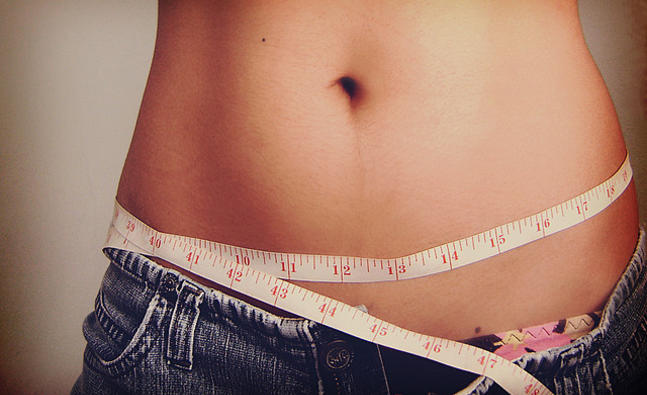Differences between anorexia and healthy dieting

Anorexia is a serious eating disorder. It can damage your health and even threaten your life. But you're not alone. There's help available when you're ready to make a change. You deserve to be happy. Treatment will help you feel better and learn to value yourself.
Anorexia nervosa is a complex eating disorder with three key features:
-
refusal to maintain a healthy body weight
-
an intense fear of gaining weight
-
a distorted body image
While people with anorexia often deny having a problem, the truth is that anorexia is a serious and potentially deadly eating disorder. Fortunately, recovery is possible. With proper treatment and support, you or someone you care about can break anorexia's self-destructive pattern and regain health and self-confidence.
There are two types of anorexia. In the restricting type of anorexia, weight loss is achieved by restricting calories (following drastic diets, fasting, and exercising to excess). In the purging type of anorexia, weight loss is achieved by vomiting or using laxatives and diuretics.
Anorexia may also be a way of distracting yourself from difficult emotions. When you spend most of your time thinking about food, dieting, and weight loss, you don't have to face other problems in your life or deal with complicated emotions.
Unfortunately, any boost you get from starving yourself or shedding kilograms is extremely short-lived. Dieting and weight loss can't repair the negative self-image at the heart of anorexia. The only way to do that is to identify the emotional need that self-starvation fulfills and find other ways to meet it.
The difference between dieting and anorexia
Healthy dieting
Healthy dieting is an attempt to control weight.
Your self-esteem is based on more than just weight and body image.
You view weight loss as a way to improve your health and appearance.
Your goal is to lose weight in a healthy way.
Anorexia
Anorexia is an attempt to control your life and emotions.
Your self-esteem is based entirely on how much you weigh and how thin you are.
You view weight loss as a way to achieve happiness.
Becoming thin is all that matters; health is not a concern.
Anorexic food behaviour signs and symptoms
-
Dieting despite being thin - Following a severely restricted diet. Eating only certain low-calorie foods. Banning "bad" foods such as carbohydrates and fats.
-
Obsession with calories, fat grams, and nutrition - Reading food labels, measuring and weighing portions, keeping a food diary, reading diet books.
-
Pretending to eat or lying about eating - Hiding, playing with, or throwing away food to avoid eating. Making excuses to get out of meals ("I had a huge lunch" or "My stomach isn't feeling good").
-
Preoccupation with food - Constantly thinking about food. Cooking for others, collecting recipes, reading food magazines, or making meal plans while eating very little.
-
Strange or secretive food rituals - Refusing to eat around others or in public places. Eating in rigid, ritualistic ways (e.g. cutting food "just so", chewing food and spitting it out, using a specific plate).
Tips for helping a person with anorexia
-
Think of yourself as an "outsider". In other words, someone not suffering from anorexia. In this position, there isn't a lot you can do to "solve" your loved one's anorexia. It is ultimately the individual's choice to decide when they are ready.
-
Be a role model for healthy eating, exercising, and body image. Don't make negative comments about your own body or anyone else's.
-
Take care of yourself. Seek advice from a health professional, even if your friend or family member won't. And you can bring others - from peers to parents - into the circle of support.
-
Don't act like the food police. A person with anorexia needs compassion and support, not an authority figure standing over the table with a calorie counter.
-
Avoid threats, scare tactics, angry outbursts, and put-downs. Bear in mind that anorexia is often a symptom of extreme emotional distress and develops out of an attempt to manage emotional pain, stress, and/or self-hate. Negative communication will only make it worse.
-
5 Worst diet excuses
-
Stepping on the Scale This Often Could Boost Weight-Loss Results
You know that the number on the scale isnt the only way to judge weigh
-
Lose weight with better meal planning
-
Healthy snack swops
-
Diet Soda and Weight Gain
ABC News reported yesterday that diet soda sales have dropped sev
-
50 Best Weight Loss Exercises You Can Try
Not every one of us can afford a good physical trainer who can guide u
- DON'T MISS
- Your Weight Loss Prescription: Make One For Breakfast
- Could your plates colour affect how much you eat?
- The TRUTH About Quick Weight Loss (Its Not What You Think)
- Cut down on alcohol to prevent weight gain
- The Weird Thing That Helps Prevent Weight Gain
- Stay motivated
- Why almonds make the perfect slimming snack
- Tight, Toned Tummy Tips: Always add a ‘fun factor’ to your workout
- Join the Real Meal Revolution and lose weight
- 5 Fast, fat-burning workouts you can do away from the gym




